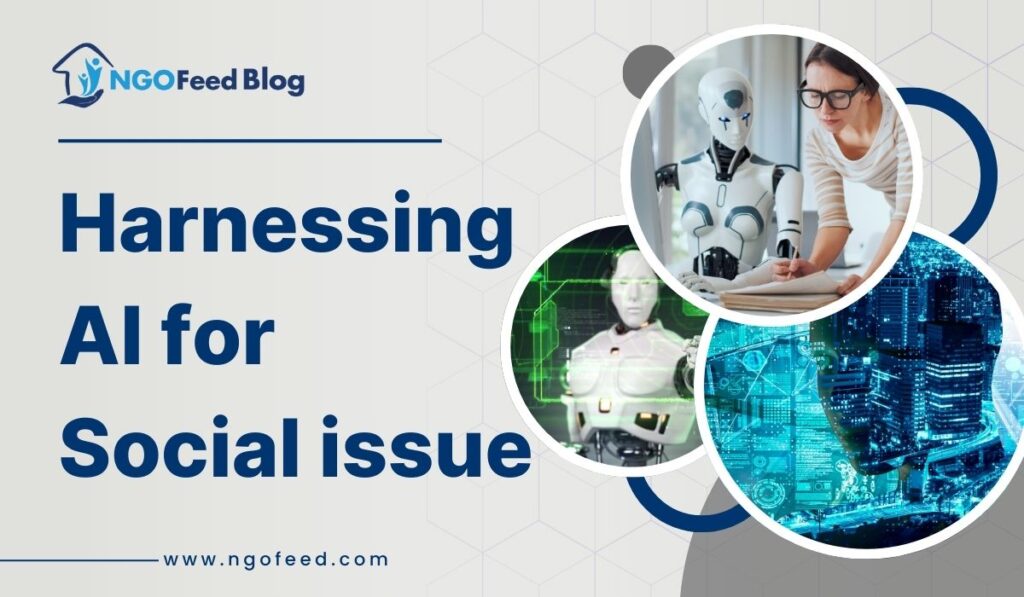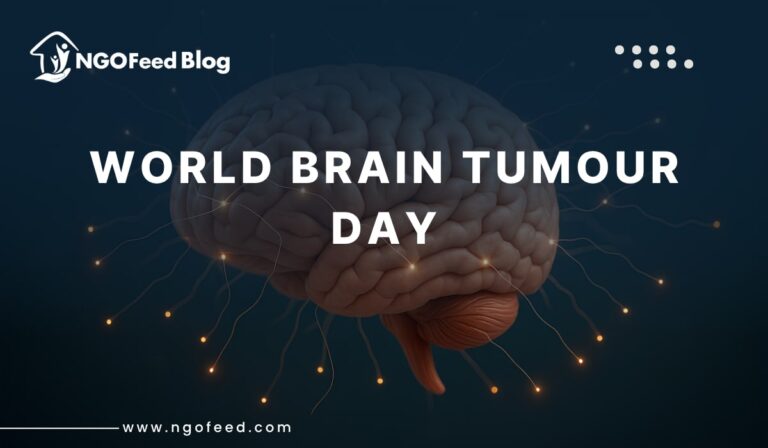Harnessing AI for Social Issues: Social good in business is incorporating ethical, responsible, and sustainable principles into a company’s core operations to impact society and the environment positively. This approach aims to balance financial success with social and environmental considerations and positively impact the world.
This concept encompasses various initiatives, such as minimizing a company’s carbon footprint, promoting diversity and inclusion, ensuring fair labor practices, supporting local communities, and engaging in philanthropic activities. It can enhance a company’s reputation, attract socially conscious consumers, foster employee engagement, and drive long-term business sustainability.
- Social good incorporates socially responsible, ethical, and environmentally sustainable practices in a company’s core operations. Its primary purpose is to impact society and the environment positively.
- This approach focuses on serving the community, replenishing the planet, and making a profit. It involves making conscious choices and ensuring the business addresses social and environmental issues.
- By encouraging these initiatives, businesses can boost their reputation and foster sustainability and social equality.
Table of Contents
Also Read: Canva for Nonprofits
How To Integrate?
Some steps for integrating social good for business are:
- Businesses must clarify the social or environmental issues they want to address. They must identify the areas where they can make the most meaningful impact and align with their core values and expertise.
- Companies should establish clear, measurable goals reflecting their commitment to this approach. It could include setting targets for reducing carbon emissions, increasing diversity within the workforce, or supporting a specific social cause.
Also Read: How Social Media in Amplifying Social Causes
- They may promote a culture that values this cause by incorporating it into the company’s mission, values, and day-to-day operations. They may encourage employee engagement and participation in social initiatives and provide training and resources to help them understand the importance of social responsibility.
- Businesses may evaluate their existing practices and identify areas to integrate these initiatives. It could involve reviewing and boosting fair labor practices and responsible sourcing, implementing sustainable production methods, or reducing waste and energy consumption. They must make conscious choices prioritizing social and environmental impact throughout their operations.
- They can collaborate with stakeholders like customers, employees, suppliers, and local communities to gather insights and perspectives. Moreover, they can engage in partnerships and collaborations with like-minded organizations, nonprofits in India, and government agencies to amplify the impact.
Importance of AI for Social Issues
- While AI will affect all SDGs, experts we surveyed believe that AI has a particularly high potential to make a difference for five: Good Health and Well-Being (SDG 3), Quality Education (SDG 4), Climate Action (SDG 13), Affordable and Clean Energy (SDG 7), and Sustainable Cities and Communities (SDG 11). In fact, 60 percent of deployments of not-for-profit AI for social good were in these areas.
- Relative to their perceived AI-potential, the SDGs for Zero Hunger (SDG 2), Life on Land (SDG 15), and Peace, Justice and Strong Institutions (SDG 16) have many use case deployments, whereas Quality Education (SDG 4), Affordable and Clean Energy (SDG 7), and Climate Action (SDG 13) have fewer (Exhibit 1).
- We excluded Decent Work & Economic Growth (SDG 8); Industry, Innovation & Infrastructure (SDG 9); and Partnerships for Goals (SDG 17) from the not-for-profit deployment, foundation grants, and private capital analysis.
Also Read: How AI is helping NGOs?
The Future of AI in Social Work
The future of AI in social work is full of potential. As AI technologies continue to evolve and progress, we can anticipate creating more innovative solutions tailored to meet the unique needs of the populations we serve. Collaborations between social workers, computer scientists, and other experts will be crucial in developing AI systems that are not only technologically advanced but also ethically responsible and socially acceptable.
Imagine a future where social workers routinely use AI to analyze patterns in local data, identifying neighborhoods with a high risk of youth disengagement. Based on this analysis, they can develop targeted programs to address both issues. For youth disengagement, they might create after-school clubs, family support services, and mentorship programs designed to re-engage youth and support families.
They could implement community-based interventions for crime prevention, such as youth diversion programs, neighborhood watch initiatives, and partnerships with local law enforcement. These programs can prevent long-term social isolation, reduce crime rates, and enhance community cohesion.
Virtual and augmented reality technologies could be utilized to create immersive, engaging experiences that teach valuable life skills and promote positive behaviors. Social workers might also collaborate with AI-powered chatbots and virtual assistants to provide 24/7 support and guidance to youth and families, ensuring that help is always available when needed.
Also Read: Role of Chatbots in Enhancing NGO Support Service
This creative application of AI demonstrates the potential of crafting tailored, proactive social work interventions that address the complex needs of each community, ultimately promoting greater well-being, public safety, and positive social change. The future of AI and social work is not just about preventing social issues but also about empowering individuals and communities to thrive in new and innovative ways.
The intersection of AI and social work presents an unprecedented opportunity to transform service delivery and empower vulnerable populations. By embracing AI’s potential and navigating its ethical landscape with care, social work can leverage technology to enhance its impact on society’s most vulnerable.
As we move forward, it is essential to engage in continuous dialogue, prioritize ethical practice, and foster a culture of innovation and collaboration.









